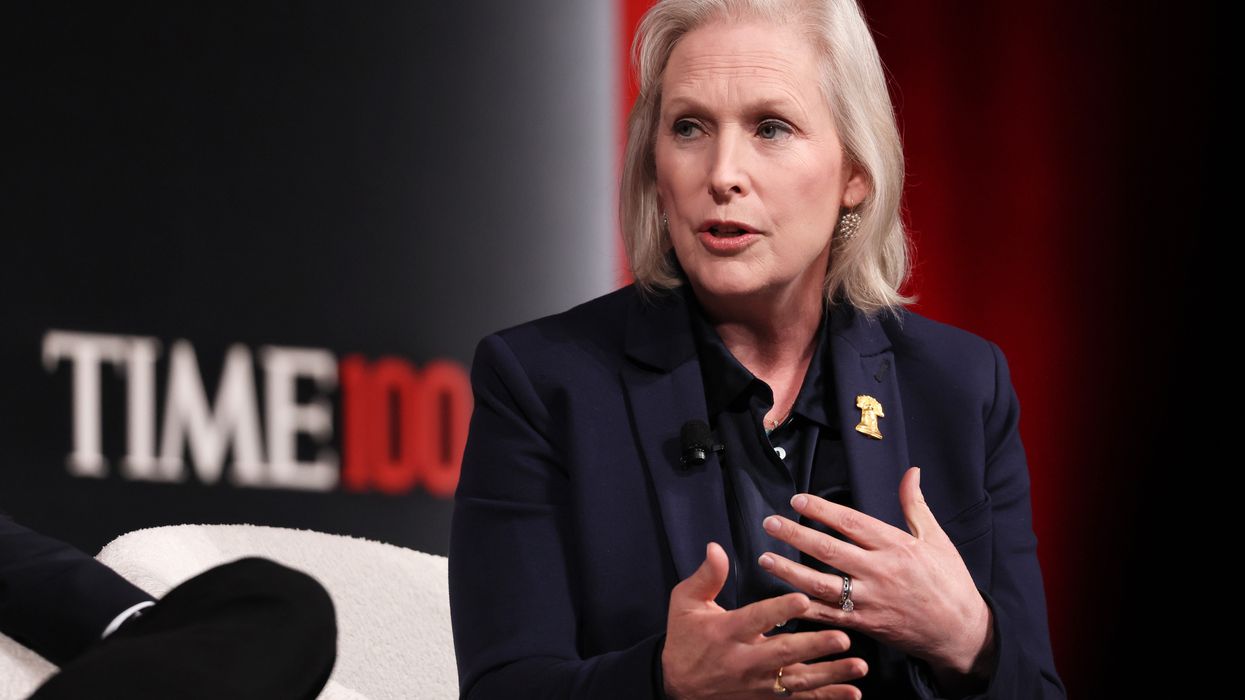Another of the hosts, Lawrence Jones, claimed that the government has "given billions of dollars to mental health, to the homeless population," but that "a lot of them don't want to take the programs, a lot of them don't want to get the help that is necessary."
Jones continued: "You can't give them a choice. Either you take the resources that we're going to give you, or you decide that you're going to be locked up in jail. That's the way it has to be now."
Kilmeade then interjected with his suggestion that instead of jail, they should be given "involuntary lethal injection, or something. Just kill 'em."
As one X user noted, Jones and co-host Ainsley Earhardt, "[didn't] even blink an eye" in response to this call for mass murder.
While the claim that homeless people often "refuse" abundant services is a common talking point, it is not borne out by data. According to a report by the National Alliance to End Homelessness in 2023, more than three-fourths of direct service providers reported that they were forced to turn away homeless people due to staffing shortages.
But even in cases where homeless people are offered services—such as temporary shelter beds—and decline them, they often do so not because they prefer to be on the street but because shelters are often overcrowded and poorly maintained, or have restrictive rules that require them to separate from their families, pets, and belongings.
When homeless people are offered permanent shelter, they are comparatively much more likely to accept it. According to one 2020 study from UC San Francisco, 86% of "high-risk" chronically homeless people given access to permanent supportive housing were successfully housed and remained in their housing for several years, a much higher rate than those given temporary solutions.
But as Melanie D'Arrigo, executive director of the Campaign for New York Health, wrote on X, "Universal healthcare, housing, and anti-poverty programs are considered more 'radical' on Fox News than mass murder."
Kilmeade's calls to execute the homeless were met with horror and disgust from advocates. Donald Whitehead, executive director of the National Coalition for the Homeless, called for Kilmeade to resign.
“It is dangerous. It shows a lack of human compassion and it is really the worst possible time for that kind of language to be expressed,” Whitehead told the Irish Star.
Jesse Rabinowitz, communications and campaign manager with the National Homelessness Law Center in Washington, DC, noted in The Independent that Kilmeade's comments come as the Trump administration "is proposing government-run detention camps and massive psychiatric asylums" to house the homeless.
In August, the president launched a crackdown against homeless encampments in DC that advocates say has left hundreds of people with nowhere to go and dependent on overwhelmed city services. Meanwhile, his administration and recent Republican legislation have introduced massive cuts to housing funding for homeless people across the United States.
“America’s homeless population includes over a million children and tens of thousands of veterans, many of whom served in Iraq or Afghanistan,” said Rep. Don Beyer (D-Va.). “Nobody deserves to be murdered by the government for mental illness or poverty. These Fox hosts are calling for mass murder—it’s sick.”
Kilmeade apologized for his comment on Sunday, describing it as an "extremely callous remark.” There is no indication from Fox News that Kilmeade will be subject to any disciplinary action over his remarks, which critics found noteworthy given the punishments other figures in mainstream media have faced for saying far less.
Photojournalist Zach D. Roberts pointed out that earlier this week, MSNBC fired contributor Matthew Dowd for criticizing the "hateful" and "divisive" rhetoric of right-wing activist Charlie Kirk shortly after he'd been assassinated.
"On MSNBC, a contributor got fired for lightly criticizing Charlie Kirk," Roberts said. "Meanwhile, on Fox News, Brian Kilmeade calls for the murder of homeless people for being homeless. Nothing has happened to him. I don't know if there can be a more obvious divide in politics."


